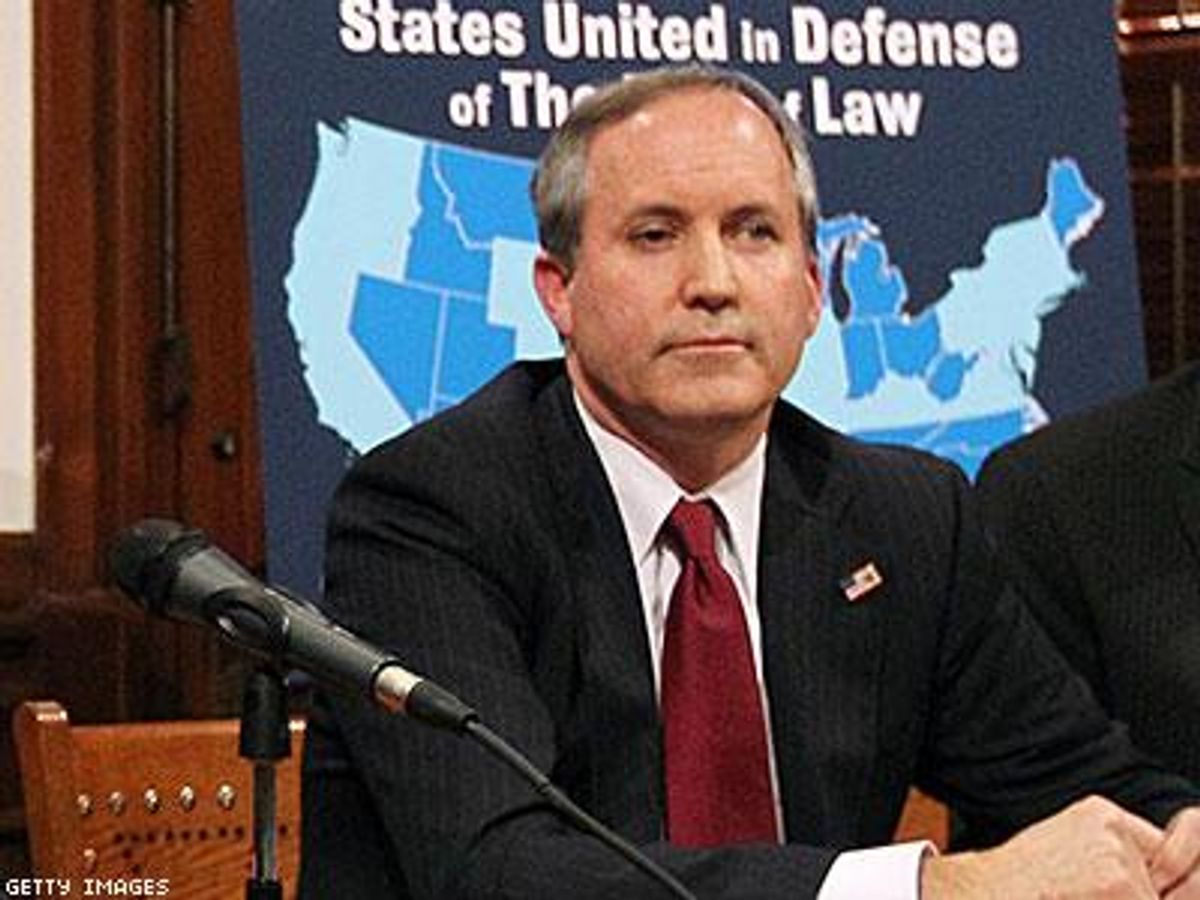The attorney general of Texas says county clerks and their staff members can opt out of issuing marriage licenses to same-sex couples if they object on religious grounds, without facing disciplinary action by the state.
However, legal experts warn that public employees who refuse to issue the licenses could face civil lawsuits or be found in contempt of court -- although the attorney general's office promises to assist those facing such actions.
Attorney General Ken Paxton issued a memo on the matter Sunday, denouncing the Supreme Court's Friday ruling in Obergefell v. Hodges, which found same-sex couples have a constitutional right to marry nationwide.
"Friday, the United States Supreme Court again ignored the text and spirit of the Constitution to manufacture a right that simply does not exist," Paxton wrote. "In so doing, the Court weakened itself and weakened the rule of law, but did nothing to weaken our resolve to protect religious liberty and return to democratic self-government in the face of judicial activists attempting to tell us how to live." He called the ruling "lawless" and "flawed."
In a nonbinding legal opinion he crafted at the request of Lt. Gov. Dan Patrick, Paxton said county clerks and their staffs may refuse to license same-sex marriages if they have religious objections, and judges and justices of the peace may refuse to perform ceremonies for same-sex couples.
"It is important to note that any clerk who wishes to defend their religious objections and who chooses not to issue licenses may well face litigation and/or a fine," Paxton wrote. "But, numerous lawyers stand ready to assist clerks defending their religious beliefs, in many cases on a pro-bono basis, and I will do everything I can from this office to be a public voice for those standing in defense of their rights."
Neel Lane, a lawyer for the couples who challenged Texas's ban on same-sex marriage, told The Dallas Morning News that federal civil rights lawsuits are indeed a possibility. Other lawyers told the paper that couples denied licenses could ask U.S. District Judge Orlando Garcia, who last year ruled the Texas ban unconstitutional, to hold the employee in contempt of court. Garcia's ruling was on hold while being appealed -- until the Supreme Court decision -- but he has issued an injunction against enforcement of the ban, the Morning News reports.
Paxton admitted that if all employees in a clerk's office object to licensing same-sex marriages and the office is still licensing opposite-sex unions, "it is conceivable that an applicant for a same-sex marriage license may claim a violation of the constitution." Refusing to issue licenses to any couples, same-sex or opposite-sex, would be legally problematic, he added.
"Essentially, Paxton invited clerks, their employees and the judges and justices of the peace to defy the Supreme Court," the Morning News notes. "But he didn't promise they'll win.
As of today, many counties in the state were still not issuing licenses to same-same couples, either because they were waiting for Paxton's guidance or preparing new, gender-neutral documents, the Morning News reports. Counties in most of the state's major metropolitan areas, such as those that include Dallas, Houston, Austin, and San Antonio, were issuing licenses to same-sex couples. Denton County Clerk Juli Luke, who had indicated Friday that she was awaiting Paxton's opinion, said Sunday that her office would join those licensing same-sex marriages, even though such unions are "in contradiction to my faith and belief that marriage is between one man and one woman."
Meanwhile, Jim Obergefell, whose case out of Ohio gives its name to the Supreme Court ruling, joined other LGBT activists today at the state capitol in a demonstration calling for statewide antidiscrimination protections.
"In many states, including my home state of Ohio and right here in Texas, you can get married but then suffer consequences," Obergefell said, according to The Texas Tribune. "You can get married and then lose your job, lose your home and so much more because we are not guaranteed nondiscrimination protections. ... Friday's historic ruling is a victory, but it's just the beginning."













































































